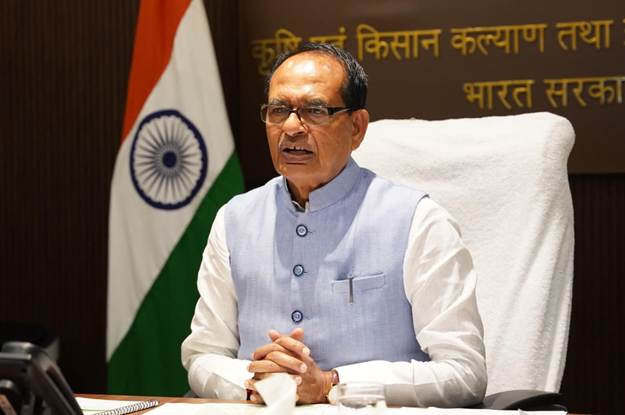Space Technology Driving India’s Agricultural Transformation: Shivraj Singh Chouhan
Shri Chouhan said he was especially proud to see National Space Day celebrated at ICAR, noting that agriculture today is inseparable from the benefits of space technology.

- Country:
- India
On the occasion of National Space Day, Union Minister for Agriculture & Farmers’ Welfare and Rural Development, Shri Shivraj Singh Chouhan, virtually addressed a special programme at the Indian Council of Agricultural Research (ICAR), Pusa, New Delhi. The event, themed “Research and Development in Space Technology for Agricultural Transformation,” brought together ICAR Director General Dr. M.L. Jat, senior scientists, and agricultural experts to discuss how space science can further revolutionize India’s farming sector.
Space Science as a Pillar of Agricultural Growth
Shri Chouhan said he was especially proud to see National Space Day celebrated at ICAR, noting that agriculture today is inseparable from the benefits of space technology. Calling scientists the “modern sages”, he emphasized how space-based applications have transformed agriculture:
-
Crop yield estimation and acreage assessments for wheat, rice, mustard, cotton, sugarcane, and other crops.
-
Weather monitoring and prediction through ISRO’s Geo Portal, which now provides accurate information on rainfall, drought, and temperature.
-
Soil moisture mapping, crop health monitoring, and pest detection using satellite data and farmer-uploaded images.
-
Integration of Ministry of Agriculture’s data systems with NRSC’s CROP (Comprehensive Remote Sensing Observation on Crop Progress) framework.
He highlighted the importance of the NASA–ISRO Synthetic Aperture Radar (NISAR) mission, which is enabling accurate estimates of soil moisture, crop biomass, and health across both small plots and large agricultural regions.
Transforming Crop Insurance and Disaster Preparedness
Referring to past challenges in the Pradhan Mantri Fasal Bima Yojana, where flawed crop-cutting experiments sometimes denied rightful compensation, Shri Chouhan explained how satellite-based remote sensing now allows transparent and accurate assessment of crop losses.
This scientific approach, he noted, ensures timely compensation to affected farmers and builds trust in government schemes. Furthermore, space science provides early warnings of extreme weather events such as storms, heatwaves, or droughts—helping farmers protect their crops and enabling more effective disaster management.
Farmers’ Demands and Scientific Challenges
During the Viksit Krishi Sankalp Abhiyan, farmers raised practical issues such as the need for devices to detect fake fertilisers and pesticides, which often cause severe crop damage. Shri Chouhan urged scientists to urgently develop solutions, citing cases where soybean crops had been burned by harmful chemicals.
He also underlined the need to address virus attacks in crops like sugarcane and cotton, while increasing productivity in pulses, oilseeds, and soybean to strengthen India’s food security.
Expanding Research Horizons
The Minister emphasized that science for agriculture must extend beyond space applications to include genetics, soil health, livestock, horticulture, and natural resource management. Nearly 500 new research topics have emerged from recent consultations, requiring scientists to adopt a “One Nation – One Team – One Goal” approach where research is coordinated for more logical and impactful outcomes.
He encouraged scientists to prepare a “nectar-like roadmap” for India’s agricultural future, ensuring that knowledge flows directly to farmers in a way that is accessible, practical, and beneficial.
India’s Space Legacy and Achievements
Praising India’s space programme, Shri Chouhan said:
“The world is amazed by India’s accomplishments in space. Chandrayaan’s South Pole landing is a matter of great pride, and with Gaganyaan, we are preparing to take another giant leap.”
He congratulated astronaut Shri Shubhanshu Shukla for his successful mission, calling it a landmark achievement that will accelerate India’s journey in space exploration.
The Minister linked these achievements to India’s ancient scientific tradition, recalling how Aryabhata laid the foundations of mathematics and astronomy thousands of years ago, and how modern India continues to carry that legacy forward.
A Call for a Scientific Mindset in Agriculture
Concluding his address, Shri Chouhan urged all stakeholders to adopt a scientific outlook in agriculture, animal husbandry, and allied sectors. He reiterated his faith in Indian scientists’ extraordinary capacity for innovation, saying:
“Through science and technology, we have transformed farmers’ lives—but much more remains to be done. I salute our scientists for their vision and ability, and I am confident they will continue to achieve remarkable milestones for the nation.”
The celebration at ICAR reaffirmed that space technology is not just about exploration beyond Earth—it is a vital tool for transforming Indian agriculture, empowering farmers, and ensuring food security for future generations.










